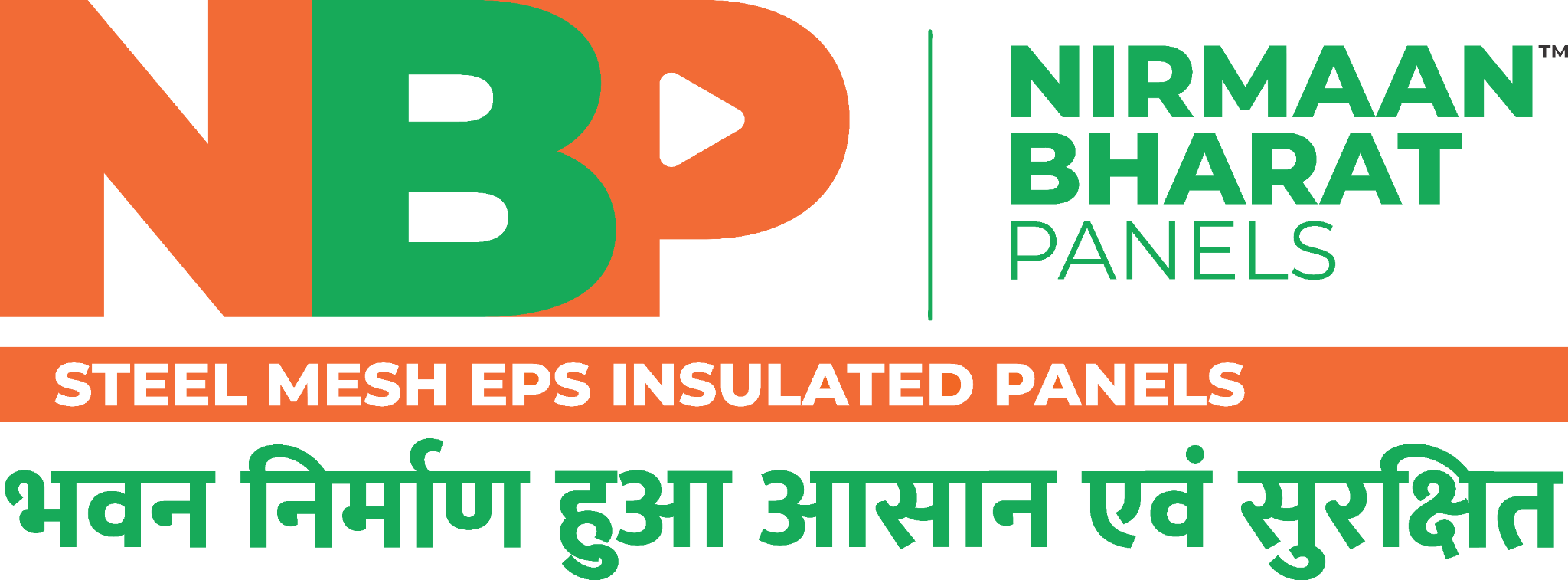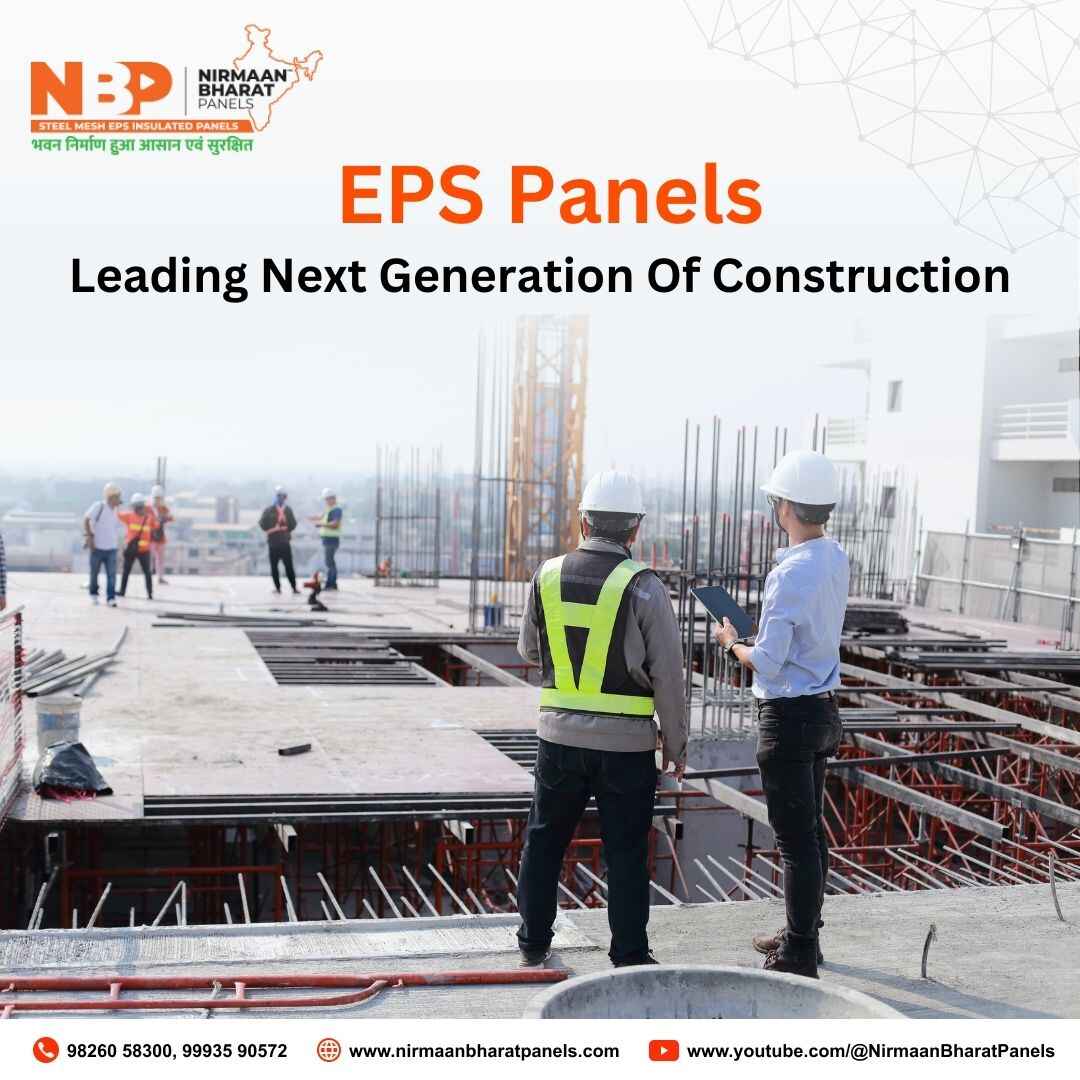EPS panels, or Expanded Polystyrene panels, are a type of construction material that consists of an expanded polystyrene foam core sandwiched between two external layers. In Delhi, a city undergoing rapid urbanization and increasing demand for sustainable building practices, EPS panels provide an ideal solution to modern construction challenges. This blog explores the utilization, benefits, cost, and impact of EPS panels in Delhi, shedding light on why these panels are revolutionizing the construction landscape in the capital city.
Table of Contents
ToggleWhat Are EPS Panels?
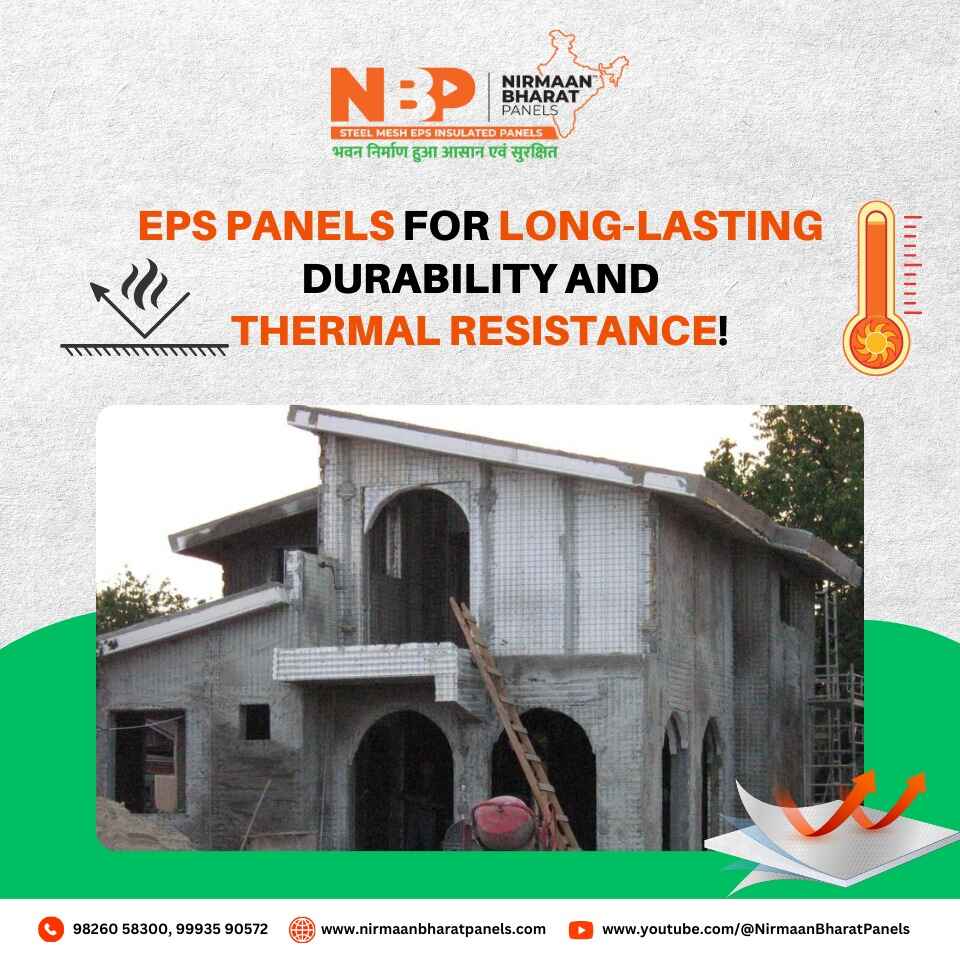
The term “EPS panel” refers to a kind of building material made up of two outer layers encasing an expanded polystyrene foam core. These panels are widely used in the construction industry for their lightweight nature, excellent insulation properties, and versatility. EPS panels are available in a wide range of sizes, thicknesses, and combinations to meet the needs of residential, commercial, and industrial building projects.
The core of EPS panels is formed by expanding polystyrene beads with steam, which creates a lightweight yet rigid foam material. This expanded polystyrene foam is known for its exceptional thermal insulation properties, making EPS panels an energy-efficient choice for building envelopes.
The outer layers of EPS panels can be made from different materials, including steel, aluminum, fiber cement, or oriented strand board (OSB). These outer layers provide structural support and protection to the EPS core, enhancing the overall strength and durability of the panels.
Types of EPS Panels Available In Delhi:
1. Sandwich Panels: An EPS core is encased in two exterior layers made of fiber cement, steel, or aluminum to create sandwich panels. Lightweight EPS insulation benefits are combined with the structural integrity of the outer layers in these panels.
2. Structural Insulated Panels (SIPs): Structural Insulated Panels (SIPs) are made up of an EPS core sandwiched between two structural facings, which are often oriented strand board (OSB or plywood). These panels have a high strength-to-weight ratio and provide good thermal insulation.
3. Reinforced EPS Structural Panels: Reinforced EPS structural panels are enhanced versions of standard EPS panels designed to provide additional strength and support for structural applications. These panels typically consist of an EPS core reinforced with materials such as steel mesh or fiberglass, which are embedded within the panel to enhance its load-bearing capacity and durability.
4. Load-Bearing Panels: Load-bearing EPS panels are intended to withstand heavy structural loads. These panels are designed to offer structural support and insulation, making them an excellent alternative for a variety of architectural applications. To improve their capacity to support loads, they frequently add extra materials like steel or concrete.
5. Facades: EPS panels used for facades are designed to provide an attractive exterior finish while offering excellent insulation and weather resistance. These panels may be modified with a variety of finishes and textures to obtain the desired aesthetic look.
6. Partition Walls: EPS partition walls are non-load-bearing walls used for the division of interior spaces. These panels offer a quick and efficient way to create partitions within buildings, providing both thermal and acoustic insulation.
7. Compound Walls: Residential and commercial establishments benefit from compound walls in terms of protection and privacy. Reinforced EPS panels offer an efficient and cost-effective solution for constructing compound walls, combining strength with thermal insulation.
8. Structural Slabs: Structural slabs form the floors and ceilings of buildings, supporting loads and providing stability. Reinforced EPS structural panels can be used as formwork for pouring concrete slabs, offering advantages such as reduced weight and improved insulation.
9. Roof Panels: Roof panels play a crucial role in protecting buildings from the elements and maintaining thermal comfort. Reinforced EPS panels for roofs offer excellent insulation properties, helping to reduce energy consumption and enhance indoor comfort.
10. Steel Mesh Reinforcement: Steel mesh reinforcement is often integrated into reinforced EPS panels to enhance their structural strength and stability. The steel mesh provides additional support, especially in applications where high loads or seismic forces are a concern.
Key Benefits of EPS Panels
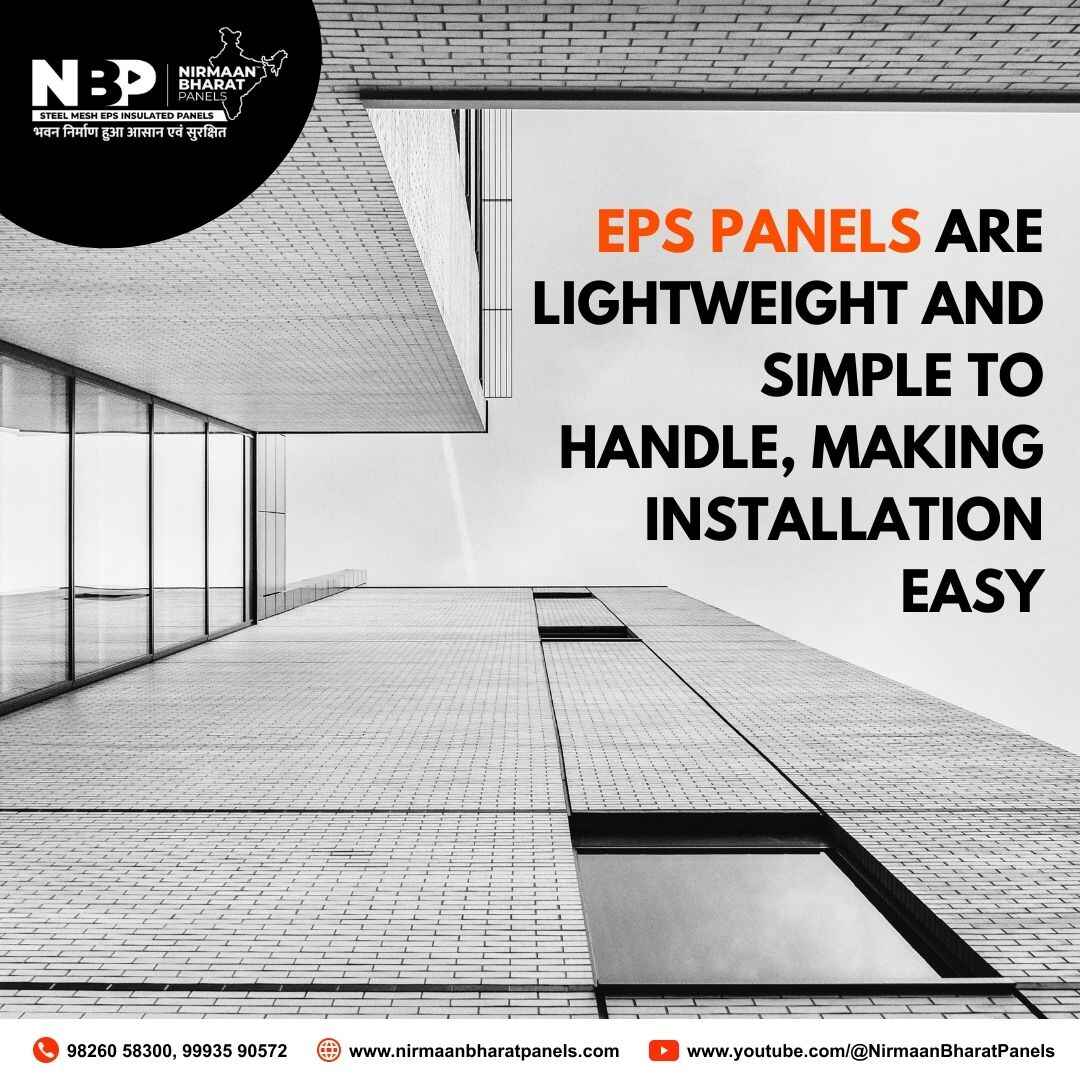
- Thermal Insulation: EPS panels boast superior thermal insulation properties, particularly advantageous in Delhi’s climate with extreme temperatures in both summer and winter. They help maintain a stable indoor temperature, reducing the need for heating and cooling and thus lowering energy costs.
- Lightweight and Strong: Despite their lightweight composition, EPS panels exhibit remarkable strength, ideal for both residential and commercial buildings in Delhi where the speed of construction and structural integrity are crucial.
- Energy Efficiency: Buildings constructed with EPS panels are more energy-efficient due to their insulating properties, contributing to reduced energy consumption and carbon footprint, and significant savings on energy bills.
- Fire Resistance: Designed to be fire-resistant, EPS panels provide an added layer of safety in buildings, essential in densely populated areas like Delhi where fire safety is a major concern.
- Ease of Installation: EPS panels are easy to install, speeding up the construction process, particularly advantageous in Delhi’s rapidly urbanizing landscape where quick and efficient building solutions are necessary.
- Sustainability: EPS is recyclable, and EPS panels can be produced with minimal environmental impact, aligning with Delhi’s growing emphasis on sustainable construction practices.
- Cost-Effectiveness: EPS panels offer a cost-effective solution for modern construction needs, with relatively low material and installation costs, combined with energy savings, making them a highly economical choice.
- Environmental Friendliness: EPS panels are environmentally friendly, recyclable, and adaptable for various applications, minimizing waste accumulation.
Applications of EPS Panels in Delhi
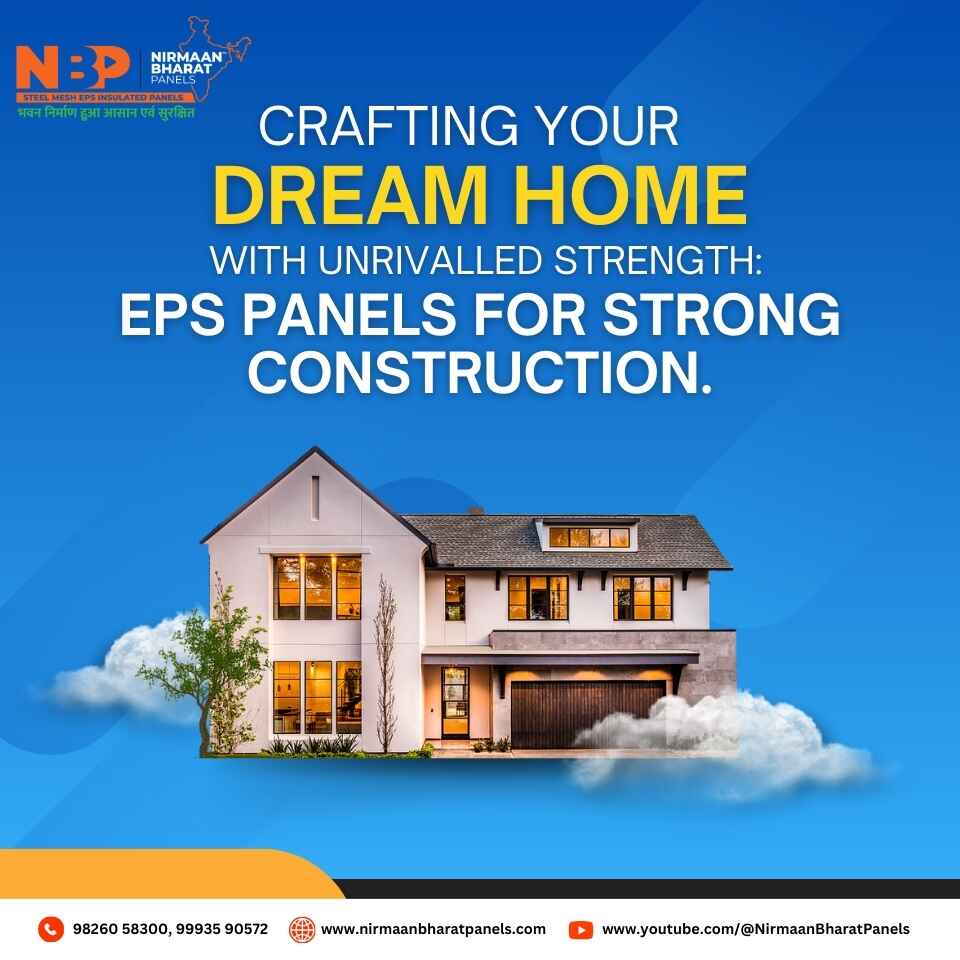
- Residential Buildings: EPS panels are utilized to construct affordable and energy-efficient homes in Delhi, meeting the city’s high housing demand with their quick installation process.
- Commercial Structures: EPS panels find application in commercial buildings such as offices, shopping malls, and warehouses, providing large, open spaces without the need for numerous support columns.
- Educational Institutions: Schools and colleges in Delhi utilize EPS panels to create safe and conducive learning environments, ensuring comfortable classroom temperatures year-round.
- Healthcare Facilities: Hospitals and clinics benefit from the clean, mold-resistant, and energy-efficient nature of EPS panels, maintaining stringent hygiene standards and creating a comfortable environment for patients.
- Temporary Structures: EPS panels offer a quick and reliable building solution for events, exhibitions, and emergency shelters, with their modular nature allowing for easy assembly and disassembly.
Future Prospects of EPS Panels in Delhi
The future of EPS panels in Delhi looks promising, driven by the city’s urgent need for sustainable and efficient building solutions. The increasing popularity of EPS panels is due to a number of factors:
1. Government Initiatives: The Indian government’s push for affordable housing and sustainable urban development aligns with the benefits offered by EPS panels. Incentives and subsidies for green building materials can further drive their adoption.
2. Technological Advancements: Innovations in EPS panel technology are making them more efficient, cost-effective, and environmentally friendly. Advances in manufacturing processes and material science will continue to enhance their performance.
3. Sustainability Goals: As Delhi strives to meet its sustainability targets, the demand for energy-efficient and low-impact building materials like EPS panels will increase. This shift is supported by the growing awareness of climate change and the need for resilient infrastructure.
Cost OF EPS panels In Delhi
The cost of EPS panels in Delhi can vary depending on various factors such as the size, thickness, quality, and supplier. Higher quality panels with additional features such as fire resistance or enhanced insulation properties may cost more. It’s important to note that while EPS panels may have an upfront cost, they offer long-term benefits such as energy savings, durability, and reduced maintenance costs. Additionally, the total cost of EPS panels for a project will also include expenses for installation, transportation, and any additional materials or accessories required. To get an accurate cost estimate for EPS panels in Delhi, it’s recommended to contact Nirmaan Bharat Panels(NBP), compare prices of various types of panels, and consider factors such as warranty, service quality, and after-sales support. Additionally, consulting with Nirmaan Bharat Panels(NBP) can help determine the most suitable EPS panel solution for your specific project needs and budget constraints.
Conclusion
EPS panels represent a transformative approach to construction in Delhi, offering a range of benefits from energy efficiency and thermal insulation to rapid installation and sustainability. As the city continues to grow and evolve, the adoption of EPS panels can play a crucial role in meeting the challenges of urbanization, climate change, and housing demand. By embracing this innovative building material, Delhi can pave the way for a more sustainable, resilient, and efficient urban future.
FAQs Related to EPS Panels In Delhi
Q.1 What are EPS panels, and how are they used in construction?
- Expanded Polystyrene Panels, or EPS panels for short, are a kind of building material that are composed of two exterior layers and an expanded polystyrene foam core. They are widely used in construction for their lightweight nature, excellent insulation properties, and versatility. EPS panels find applications in various construction projects, including residential, commercial, and industrial buildings, for purposes such as insulation, structural support, and facade cladding.
Q.2 What are the benefits of using EPS panels in construction projects in Delhi?
- The benefits of EPS panels in construction projects in Delhi include superior thermal insulation, lightweight yet strong construction, energy efficiency, fire resistance, ease of installation, sustainability, cost-effectiveness, and environmental friendliness. These attributes make EPS panels an ideal choice for addressing the challenges of rapid urbanization, extreme temperatures, and the growing need for sustainable building practices in the city.
Q.3 What are the different types of EPS panels available, and how do they differ from each other?
- There are several types of EPS panels available, including sandwich panels, structural insulated panels (SIPs), reinforced EPS structural panels, load-bearing panels, facades, partition walls, compound walls, structural slabs, roof panels, and panels with steel mesh reinforcement. These panels differ in their composition, application, and specific features, catering to various construction requirements such as insulation, structural support, and aesthetic appeal.
Q.4 What factors should be considered when selecting EPS panels for a construction project in Delhi?
- Several factors should be considered when selecting EPS panels for a construction project in Delhi, including the specific requirements of the project, such as insulation, structural support, and aesthetic appeal, the climate and environmental conditions of Delhi, the budget and cost-effectiveness of the panels, the reputation and reliability of the supplier, and compliance with local building codes and regulations. Consulting with construction professionals and experts can help ensure the selection of suitable EPS panels tailored to the needs of the project.
Q.5 How can I estimate the cost of EPS panels for my construction project in Delhi?
- Several factors, including the panels’ size, thickness, quality, and supplier, influence the cost of EPS panels for a building project in Delhi. It is recommended to contact Nirmaan Bharat Panels(NBP) to get an accurate cost estimate for EPS panels tailored to the specific requirements and budget constraints of the project.
